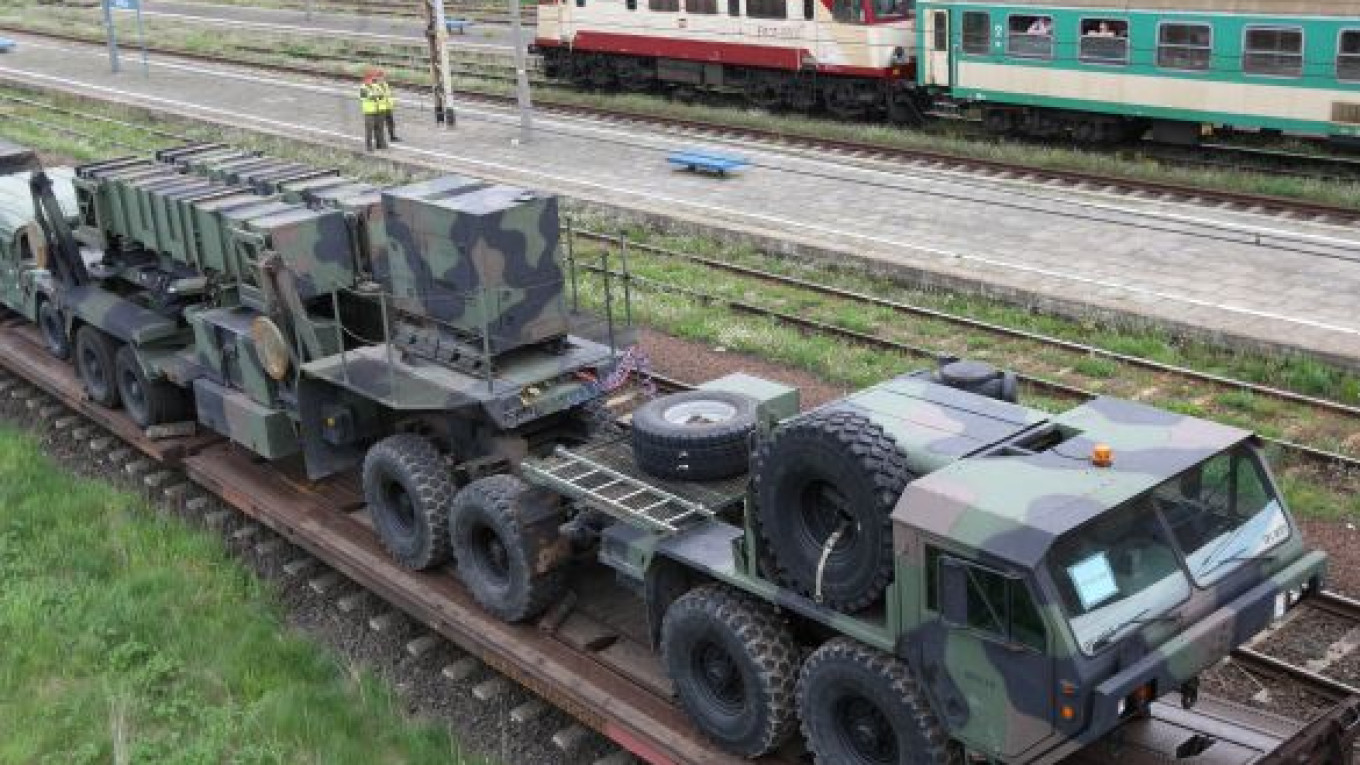WARSAW, Poland — Dozens of U.S. soldiers and a battery of Patriot missiles have arrived in Poland, where they will spend the next two years teaching the Polish military to operate the advanced guided missile system at a base just 60 kilometers from the Russian border.
Although Russia had expressed its strong opposition to having a U.S. military installation close to its border, there was no initial reaction from Moscow to the arrival of the missiles — perhaps an indication that it wants to play down the matter after failing to stop the deployment.
Andrew Paul, a spokesman for the U.S. Embassy in Warsaw, said the battery arrived on Sunday at a base in Morag, a town in northeastern Poland just 60 kilometers from Kaliningrad.
Foreign Minister Sergei Lavrov said in January, when the location was announced, that he couldn't comprehend the need "to create the impression as if Poland is bracing itself against Russia."
The mission amounts to the most significant deployment ever of U.S. forces to Poland.
The Patriot garrison was a Polish condition for a 2008 deal with Washington to host a long-range missile defense base meant to protect the United States and Europe from feared Iranian attacks. That plan, developed and negotiated by the administration of then-President George W. Bush, angered Russia and was later reconfigured by President Barack Obama.
Bush's envisioned missile defense interceptors were separate from the Patriots missiles, which have a shorter range and have not provoked Russian anger as greatly as the missile defense plan had.
In the reconfigured missile defense plan, Poland is still expected to host a missile defense base, but not until about 2018 and one on a smaller scale than that envisioned by Bush.
A Message from The Moscow Times:
Dear readers,
We are facing unprecedented challenges. Russia's Prosecutor General's Office has designated The Moscow Times as an "undesirable" organization, criminalizing our work and putting our staff at risk of prosecution. This follows our earlier unjust labeling as a "foreign agent."
These actions are direct attempts to silence independent journalism in Russia. The authorities claim our work "discredits the decisions of the Russian leadership." We see things differently: we strive to provide accurate, unbiased reporting on Russia.
We, the journalists of The Moscow Times, refuse to be silenced. But to continue our work, we need your help.
Your support, no matter how small, makes a world of difference. If you can, please support us monthly starting from just $2. It's quick to set up, and every contribution makes a significant impact.
By supporting The Moscow Times, you're defending open, independent journalism in the face of repression. Thank you for standing with us.
Remind me later.


